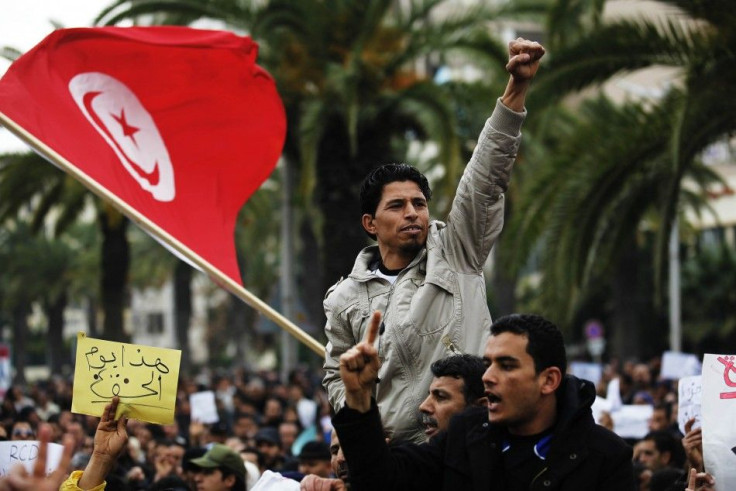Siliana Protests Prove That Tunisia’s Biggest Problems Didn’t Disappear With Ben Ali

Tunisia’s Arab Spring revolution doesn’t seem to have done much for the people of Siliana, a town on the upper edges of the Sahara Desert.
This week, demonstrators took to the streets to protest poverty and unemployment in the area. More than 200 people have been injured in clashes with the police, who are using tear gas and rubber bullets to rein in the rioting.
The demonstrators include leftist politicians and trade union officials, most of whom are opposed to the Ennahda government in Tunis. Ennahda, a moderately Islamist political party, won elections last November in Tunisia’s first national poll since the people overthrew the secular dictatorship of Zine el-Abidine Ben Ali in early 2011.
Some of the protesters in Siliana have called for Prime Minister Hamadi Jebali to step down, but he has responded with disdain.
"In democratic systems we don't force down governments. I'm not going to resign or dissolve the government; it's parliament that has authority to do that," Jebali said, according to Reuters. "We know who is behind these events: the opposition parties.”
But the protesters are holding firm to their convictions.
“Our peaceful demonstration is confronted with police raids and tear gas,” said Ahmed Chefii, a representative of the Tunisian General Labor Union, to local news outlet Tunisia Live. “It is a systematic humiliation, which tends to radicalize and manipulate the inhabitants of Siliana.”
A group of young activists in Tunis, the capital city, held a protest in sympathy on Wednesday.
Siliana is less than 100 miles north of Sidi Bouzid, the village where Tunisia’s revolution – and with it, the entire Arab Spring – began. In late December of 2010, a fruit vendor named Mohamed Bouazizi set himself aflame to protest the government. His fatal act spiraled into a popular movement; by January, the people had taken to the streets to call for Ben Ali to step down. His secular administration was overthrown after just 28 days of demonstrations, and the spirit of rebellion spread like wildfire across the Middle East.
Ennahda took over Tunis upon the inauguration of the new national assembly in November 2011, and the party is walking a fine line as it governs a country in transition. Hardline religious leaders have demanded the implementation of strict Islamic law, something Tunisian secularists, religious minorities and women’s rights advocates vehemently oppose.
Difficulties notwithstanding, Tunisia has some unique advantages as it cobbles together a new national identity -- especially compared to other countries that have seen Arab Spring revolutions. Despite oppression and corruption under Ben Ali, citizens in Tunisia are relatively well-educated and socially liberal. They have a small and cohesive population, a healthy middle class and a good reputation for gender equality by regional standards.
But economic problems still loom large, as this week’s protests have shown. International aid will help; on Tuesday and Wednesday, Tunis secured two loans of $500 million each – one from the African Development Bank and another from the World Bank. Officials say the loans have already balanced the 2013 national budget, according to Reuters.
As for Siliana and its residents, regional governor Ahmed Zine Mahjoubi could only urge patience.
“Siliana has suffered from 50 years of marginalization,” he said, according to Tunisia Live. “It cannot be transformed into Switzerland or Paris in about 10 months of work.”
© Copyright IBTimes 2024. All rights reserved.






















